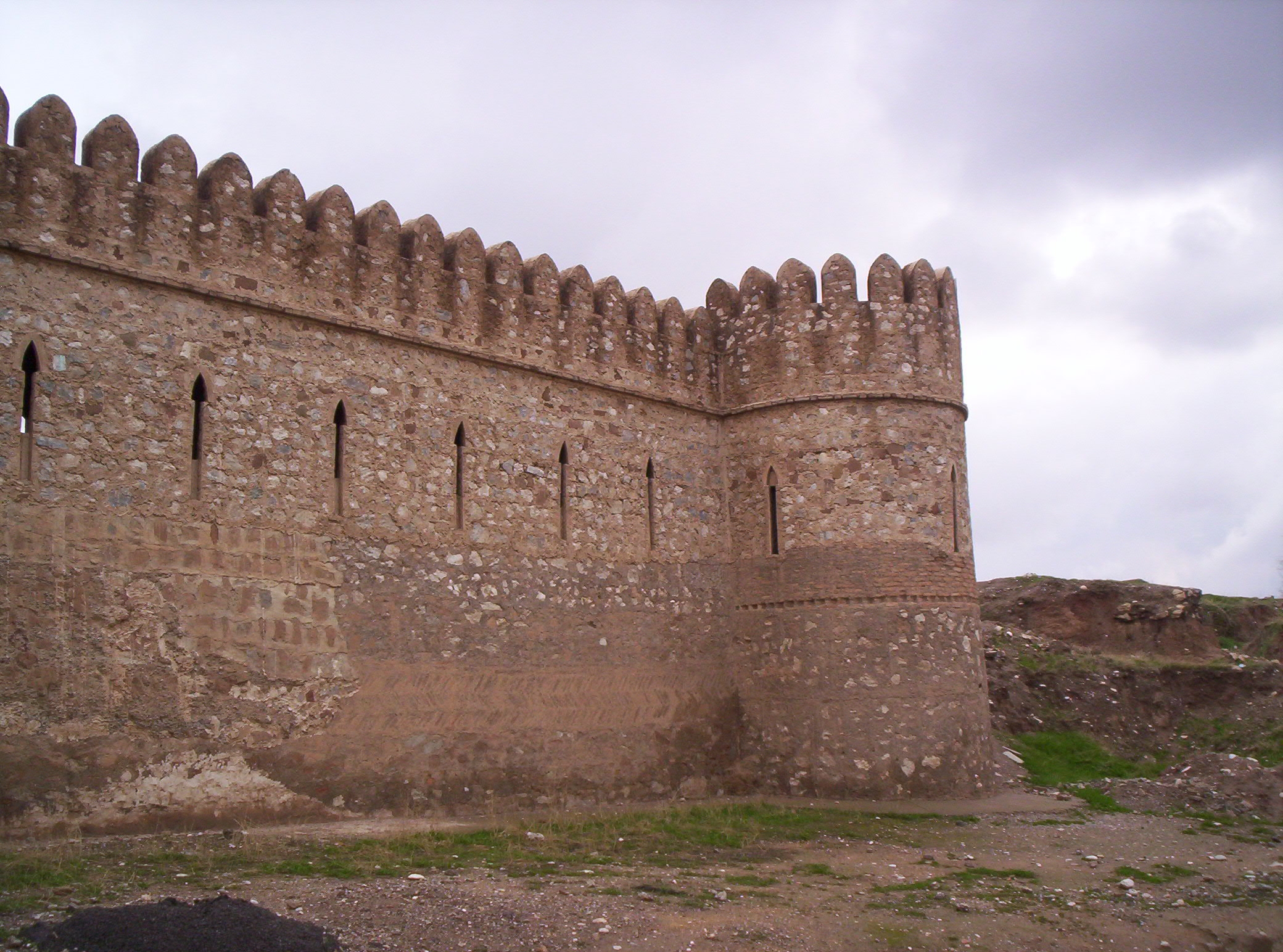
Kirkuk
Kirkuk (Arabic: كركوك;[3] Kurdish: کەرکووک, romanized: Kerkûk;[4] Syriac: ܟܪܟܘܟ, romanized: Kerkouk;[5] Turkish: Kerkük[6]) is a city in Iraq, serving as the capital of the Kirkuk Governorate, located 238 kilometres (148 miles) north of Baghdad.[7] The city is home to a diverse population of Kurds, Iraqi Turkmens and Arabs.[8] Kirkuk sits on the ruins of the original Kirkuk Citadel which sits near the Khasa River.
For other uses, see Kirkuk (disambiguation).Kirkuk was proclaimed the "capital of Iraqi culture" in 2010. It is described by the Kurdish leader and former Iraqi president Jalal Talabani as “the Jerusalem of Kurdistan”, while it is seen by the Turkmen activist Fatih Salah as the cultural and historical capital of Iraqi Turkmens.[9] The government of Iraq states that Kirkuk represents a small version of Iraq due to its diverse population, and that the city is a model for coexistence in the country.[10][11]
Etymology
The ancient name of Kirkuk was the Hurrian Arrapha[12][13] During the Parthian era, a Korkura/Corcura (Ancient Greek: Κόρκυρα) is mentioned by Ptolemy, which is believed to refer either to Kirkuk or to the site of Baba Gurgur 4.5 kilometres (2.8 mi) from the city.[14] Since the Seleucid Empire it was known as karkā d-ḇeṯ slōḵ (Syriac: ܟܪܟܐ ܕܒܝܬ ܣܠܘܟ),[15] which means 'Citadel of the House of Seleucid'[16] in Mesopotamian Aramaic, the lingua franca of the Fertile Crescent in that era.[17]
The region around Kirkuk was known historically in the Eastern Aramaic and Syriac Assyrian sources as "Beth Garmai" (Syriac: ܒܝܬܓܪܡܝ). The name "Beth Garmai" or "Beth Garme" may be of Syriac origin which meaning "the house of bones",[18] which is thought to be a reference to bones of slaughtered Achaemenids after a decisive battle between Alexander the Great and Darius III on the plains between the Upper Zab and Diyala river.[19] It was one of a number of independent Neo-Assyrian states which flourished during the Parthian empire (150 BC–226 AD).
It is also thought that region was known during the Parthian and Sassanid periods as Garmakan, which means the 'Land of Warmth' or the 'Hot Land'. In Persian "Garm" means warm;[20]
After the 7th century, Muslim writers used the name Kirkheni (Syriac for "citadel"[21]) to refer to the city.[22] Others used other variant, such as Bajermi (a corruption of Aramaic "B'th Garmayeh" or Jermakan (a corruption of Persian Garmakan) .[20]
History
Ancient history
It is suggested that Kirkuk was one of the places occupied by Neanderthals based on archeological findings in the Shanidar Cave settlement.[23] A large amount of pottery shards dating to the Ubaid period were also excavated from several Tells in the city.[24]
Ancient architectural monuments of Kirkuk include:
The archaeological sites of Qal'at Jarmo and Yorgan Tepe are found at the outskirts of the modern city. In 1997, there were reports that the government of Saddam Hussein "demolished Kirkuk's historic citadel with its mosques and ancient church".[104]
The architectural heritage of Kirkuk sustained serious damage during World War I (when some pre-Muslim Assyrian Christian monuments were destroyed) and, more recently, during the Iraq War. Simon Jenkins reported in June 2007 that "eighteen ancient shrines have been lost, ten in Kirkuk and the south in the past month alone".[105]
Geography
Climate
Kirkuk experiences a hot semi-arid climate (Köppen climate classification: BSh) with extremely hot and dry summers and mild winters with moderate rainfall. Snow is rare but it fell on 22 February 2004,[106] and from 10 to 11 January 2008.[107]
Kirkuk is twinned with: